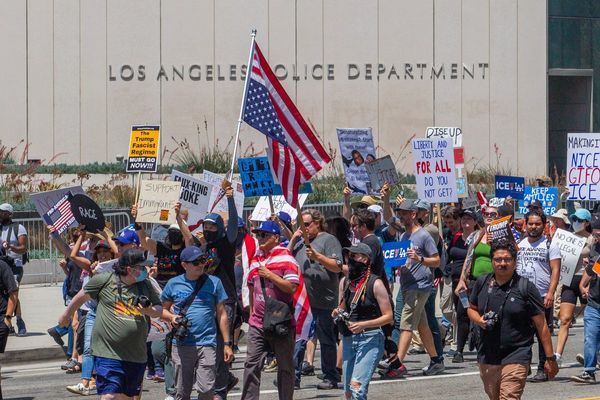India and China are sparring over the succession of the Dalai Lama after the Tibetan Buddhist spiritual leader announced his reincarnation earlier this week.
Ahead of his 90th birthday on 6 July, the 14th Dalai Lama said his successor would be chosen by his closest Tibetan advisers without interference from China.
The Dalai Lama insists that his successor will be born in a "free" country and urges his followers to reject any candidate appointed by Beijing. The Chinese government says it has the sole authority to name his successor.
“No one has the right to interfere or decide who the successor of His Holiness the Dalai Lama will be,” the Indian federal minister for minority affairs, Kiren Rijiju, said in a statement. "Only he or his institution has the authority to make that decision. His followers believe that deeply. It is important for disciples across the world that he decides his succession."
Mr Rijiju, a practising Buddhist, was set to join the Dalai Lama’s birthday celebrations this weekend in the Himalayan town of Dharamshala in Himachal Pradesh state.
The Chinese foreign ministry on Friday warned India against interfering in its domestic affairs at the expense of bilateral relations, urging it to be prudent in its words and actions.
"We hope the Indian side will fully understand the highly sensitive nature of Tibet-related issues, recognise the anti-China separatist nature of the 14th Dalai Lama," spokesperson Mao Ning told reporters.
The Dalai Lama, born Lhamo Dhondup, has been living in Dharamshala since 1959 when he fled Lhasa to escape the Chinese annexation. His escape to India sparked a wave of Tibetan exile and the formation of a government-in-exile in Dharamshala.
He has been variously branded as a “splittist” and a “wolf in a monk’s robes” by Chinese leaders from Mao Zedong through Xi Jinping.
Beijing has tightened its grip on Tibetan religious affairs since the 1950s, most notably by abducting the then six-year-old Gedhun Choekyi Nyima, the 11th Panchen Lama, in 1995 shortly after he was recognised by the Dalai Lama. The Panchen Lama is the second-highest authority in Tibetan Buddhism after the Dalai Lama.
The Dalai Lama says he wants to visit Tibet one last time before he dies but only if Chinese authorities guarantee his return to India.
The Chinese foreign ministry said he could visit but would have to stay in Tibet and “openly recognise that Tibet and Taiwan are inalienable parts of China”.
Penpa Tsering, president of the Tibetan government-in-exile, told The Independent that the Dalai Lama would visit China and Tibet if given the opportunity, but he could not live there with undue curbs on his freedom.
"If the 14th Dalai Lama has to die in exile, it will be very emotional for Tibetans inside Tibet,” he said, adding that they had been deprived of the opportunity to see their spiritual leader.
Relations between India and China nosedived after a deadly clash between border guards in 2020 but lately appeared to be on the mend.
Hair clinic ordered to pay over £5,000 to man who claims not ‘even 1% improvement’
Female teacher, 40, arrested for sexually assaulting 16-year-old male pupil
China on high alert for floods as record rain triggers landslides
Inside the Dalai Lama’s succession and what it means for the Tibetan struggle
Air India accused of mistreating families of victims after Ahmedabad crash
Indian lawmakers to review aviation safety weeks after decade’s worst plane crash







